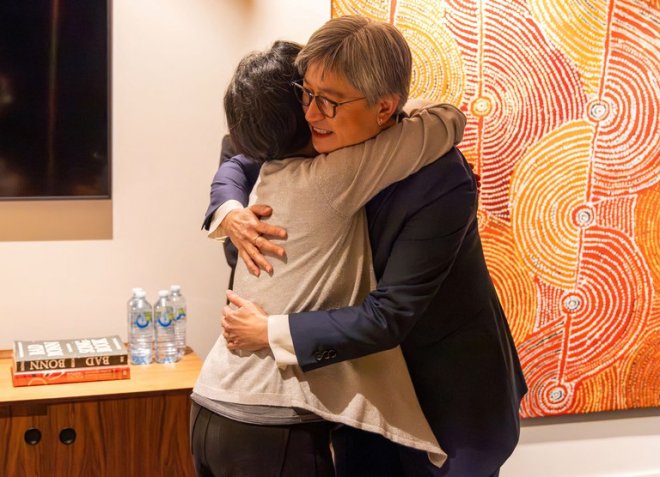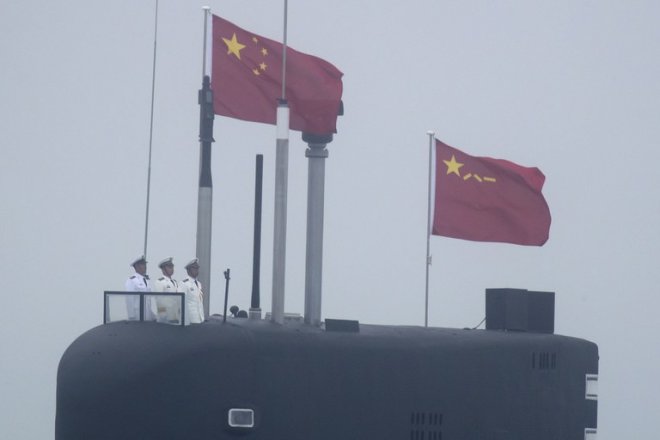Philippines’ Marcos seeks peace, development during China state visit
President Ferdinand Marcos Jr. left for his first state visit to Beijing on Tuesday to focus on strategic cooperation, amid calls by Filipino fishermen demanding a halt to Chinese harassment in the disputed South China Sea.Marcos said he hoped to oversee deals in agriculture, energy, infrastructure and trade and investment when meeting with his Chinese counterpart Xi Jinping.
“As I leave for Beijing, I will be opening a new chapter in our Comprehensive Strategic Cooperation with China,” Marcos told reporters at the Villamor Air Base in Manila before departing on the three-day trip.
“I look forward to my meeting with President Xi as we work towards shifting the trajectory of our relations to a higher gear that would hopefully bring numerous prospects and abundant opportunities for peace and development to the people of both our countries,” he said.
Marcos’ office said the trip would broaden cooperation between the two countries. Referring to the South China Sea dispute, it said “political and security issues” would be discussed in a bid to “settle problems in a friendly manner” to avoid conflict.
Last week, the department of foreign affairs said Marcos and Xi would witness the signing of an agreement “establishing direct communication” between the nations on matters regarding the contested sea region. The details of the proposed pact have not been released.
Marcos’ trip, his first to China since becoming the president last year, comes amid increasing Chinese aggression in the South China Sea. It also comes weeks after Manila accused Chinese boats of “swarming” in South China Sea waters within the Philippines’ exclusive economic zone.
China claims nearly all of the South China Sea on historical grounds, including waters within the exclusive economic zones of Brunei, Malaysia, the Philippines, Vietnam and Taiwan. Beijing also claims historic rights to areas of the waterway that overlap Indonesia’s exclusive economic zone.
Since taking office in June, Marcos has repeatedly stated that his government would assert a 2016 international arbitration court ruling, which Manila won and which invalidated China’s vast claims to the sea region.
Beijing has ignored the ruling.
Manila already has filed 65 diplomatic protests against Beijing under Marcos’s leadership.
Fishermen’s challenge
Hours before Marcos embarked on his trip, Filipino fishermen challenged him to raise with Xi the issue of continued harassment by Chinese militia forces.
“We urge the president to boldly demand Chinese President Xi Jinping stop the intimidating presence of Chinese militia and large fishing vessels,” said fishermen’s group Pamalakaya.
It said Marcos should not sacrifice sovereignty for more Chinese loans because Beijing’s encroachments in the disputed areas were far more costly than any loan it can extend to the government.
“All it takes is the Marcos administration’s strong political will to hold China accountable for irreversible damage to our territorial waters caused by its plunder and aggression,” Pamalakaya said.
A study by marine scientists from the University of the Philippines blamed China for the destruction of at least 550 hectares (1,359 acres) of coral reefs in Scarborough Shoal and 1,300 hectares (3,212 acres) of coral reefs in the Kalayaan Group of Islands.
China’s massive reclamation activities and other forms of destructive fishing practices have damaged these reefs, costing 33.1 billion pesos (U.S. $591 million) annually, the group said, citing the study.
Bilateral agreements
Meanwhile, at least 10 key bilateral agreements are expected to be signed during Marcos’ state visit. These pacts are expected to boost two-way trade as both economies look for post-pandemic growth prospects.
“I hope to return home to the Philippines with a harvest of agreements and investments that will benefit our countrymen and further strengthen the foundation of our economic environment,” Marcos said.
The trip is Marcos’ first bilateral visit to a country that does not belong to the Association of Southeast Asian Nations (ASEAN).
His mother, Imelda Marcos, laid the groundwork for establishing diplomatic ties with Beijing in 1975. The president considers this visit “a continuation of that legacy of strengthening the bonds of friendship between the Philippines and China,” according to his office.
Basilio Sepe and Jojo Riñoza in Manila contributed to this report.
BenarNews is an RFA-affiliated news service.
[圖擷取自網路,如有疑問請私訊]
|
本篇 |
不想錯過? 請追蹤FB專頁! |
| 喜歡這篇嗎?快分享吧! |
相關文章
AsianNewsCast























